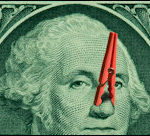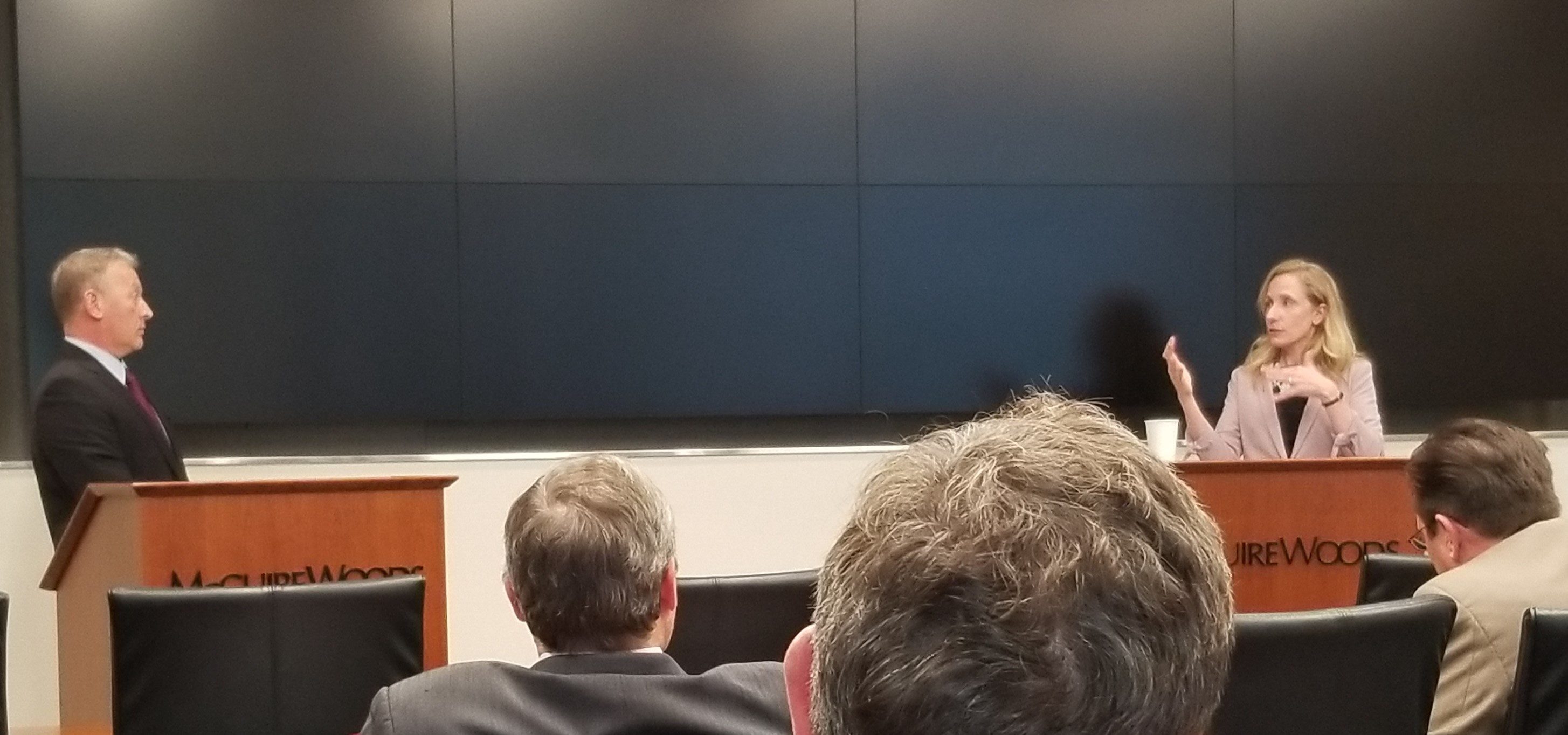Abigail Spanberger won’t take money from corporate political action committees but will from ideological political action committees because the issue PACs have their position statements on their web pages.
Spanberger said that Friday to a business organization that donates no political money, Virginia FREE, but there were plenty of big donors or their representatives in the room. Jeff Schapiro of the Richmond Times-Dispatch was there but didn’t really cover her remarks, other than to note she didn’t mention President Donald Trump (so he kindly did that for her.)
Continuing an argument I have made before, Spanberger’s careful tiptoe through this minefield is additional evidence of the powerful corrupting nature of our campaign finance system. She tried to put a nice spin on her position that business money is too tainted to accept, blaming that in large part on voter perception. When “face to face with voters” she hears that in Virginia corporate money has too much influence.
Here is what she says on her campaign web page: “As we’ve increasingly dealt with the effects of special interests in campaign finance, it’s important that all elected officials take a stand against letting a small group of funders influence our elections. And because my commitment to campaign finance reform starts now, with my campaign, I will not accept any corporate PAC donations.”
Federal election rules have caps on donations that reformers at the Virginia state level can only dream about. Corporations cannot write checks directly but must set up political action committees collecting funds from employees using the same strict limits. She is probably correct however that the average voter has no clue about that.
In response to a line of questions from Virginia FREE director Chris Saxman she said hers was really a “a pro-business stance” because it allows her to meet with business leaders and lobbyists with no talk of money. It’s “taken off the table.”
But then Saxman asked her about all the groups she does take money from. Business PACs are only a subset of the giving world. Special interests abound on all sides. That’s when she said a big difference is those groups have their agendas on full and open display, but with a company “I can’t go to their website and see what those priorities are.”
With the League of Conservation Voters, with union groups, with Emily’s List and others Spanberger can research their public positions and decide whether “I am aligned with them.” If she supports them she will accept their support. Money is back on the table when they meet.
The statement about alignment had the ring of truth. The argument about transparency is sophistry. Many businesses are quite open about their goals and have clear records, and business associations fill their public pronouncements and websites with positions and background. No, Spanberger is accepting money or rejecting it based on alignment with the donor in question.
She has given up telling voters the money doesn’t make much difference, that most donors just want access or good government, and instead seems to say know my donors and you know me.
Saxman asked the obvious follow up question about party committees such as the Democratic Congressional Campaign Committee. The DCCC takes tons of business PAC money. Does that keep her from taking DCCC money? “Do I dig deep into their financials? Absolutely not.” Complete the following sentence: You can have your (blank) and (blank) it, too.
Pre-Trump Spanberger would not stand much chance and post-Kavanaugh I don’t see how she loses. The female turnout November 6 is likely to be way above usual and that’s a goal Democrats and the media will drive forward for five more weeks. The sword has two sides but one is a broadsword and the other is a dagger.
Her obvious candidate skills and public service record notwithstanding, not long ago the other positions she took during the Virginia FREE interview would be politically problematic – $15 minimum wage, hostility to the recent tax cut, acceptance of just about any position any union group might take. All are secondary now. On that point Schapiro is right.





